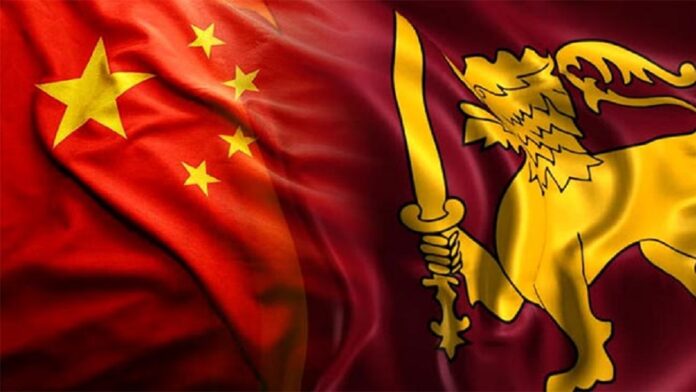By: Staff Writer
June 09, Colombo (LNW): Sri Lanka and China are actively strengthening their trade and economic cooperation, with a renewed focus on expanding bilateral trade, investment, and infrastructure partnerships under the Belt and Road Initiative (BRI) in 2025.
This growing relationship was recently underscored by the high-profile Sri Lanka-China Trade and Investment Forum, held in Colombo, where key memorandums of understanding (MoUs) were signed to advance trade facilitation and supply chain cooperation.
The Chinese Embassy in Colombo confirmed that two MoUs were signed following bilateral talks—one to establish a trade facilitation working group and the other to enhance industrial and supply chain collaboration. The agreements are expected to streamline processes for Chinese and Sri Lankan businesses and foster long-term investment ties.
The forum, attended by 115 delegates from 77 Chinese enterprises, showcased China’s strong interest in Sri Lanka’s strategic location and economic potential.
Chinese Commerce Minister Wang Wentao met with Sri Lanka’s Minister of Trade, Commerce, Food Security and Co-operative Development, Wasantha Samarasinghe, at the China-Sri Lanka Joint Trade and Economic Commission.
Discussions focused on deepening BRI-related infrastructure projects, expanding two-way trade, and exploring the use of local currency settlements in infrastructure and energy projects to reduce foreign exchange volatility.
China’s engagement also includes a push for industrial collaboration through proposed industrial zones in Colombo and Hambantota, leveraging Sri Lanka’s ports and logistical advantages. Four leading Chinese Chambers of Commerce pledged to boost partnerships in key sectors such as machinery, agriculture, textiles, and private sector investment.
At the same time, talks are ongoing to finalize a China-Sri Lanka Free Trade Agreement (FTA), which has been under negotiation since 2014. If concluded, the FTA could offer Sri Lankan exporters greater access to the vast Chinese market, especially in areas like black tea, spices, seafood, fruits, and textiles.
Sri Lanka is also exploring cooperation in clean energy, water treatment, and environmental protection technologies to complement its sustainable development goals.
However, this increasing engagement with China has raised geopolitical concerns, particularly from India, which has traditionally considered Sri Lanka part of its strategic sphere of influence in the Indian Ocean.
New Delhi remains cautious about Beijing’s growing footprint in Sri Lanka, especially in light of past controversies surrounding Chinese infrastructure projects like the Hambantota Port lease. Indian analysts worry that closer Sino-Lanka economic ties could translate into deeper strategic influence, complicating regional security dynamics.
In parallel, Sri Lanka has relaunched the Sri Lanka-China Business Cooperation Council’s Business Star Awards 2025, aimed at recognizing and incentivizing successful collaborations.
As Sri Lanka navigates its post-crisis economic recovery, its pivot toward China for trade, investment, and development aid continues to shape its foreign and economic policy landscape—albeit with close scrutiny from regional and global stakeholders.

